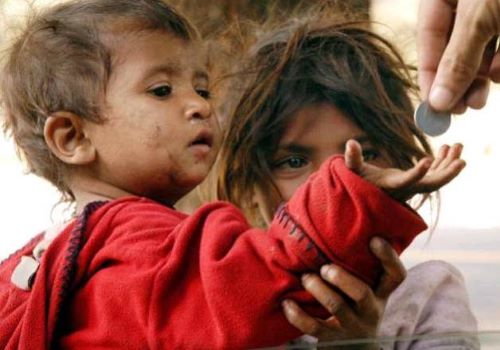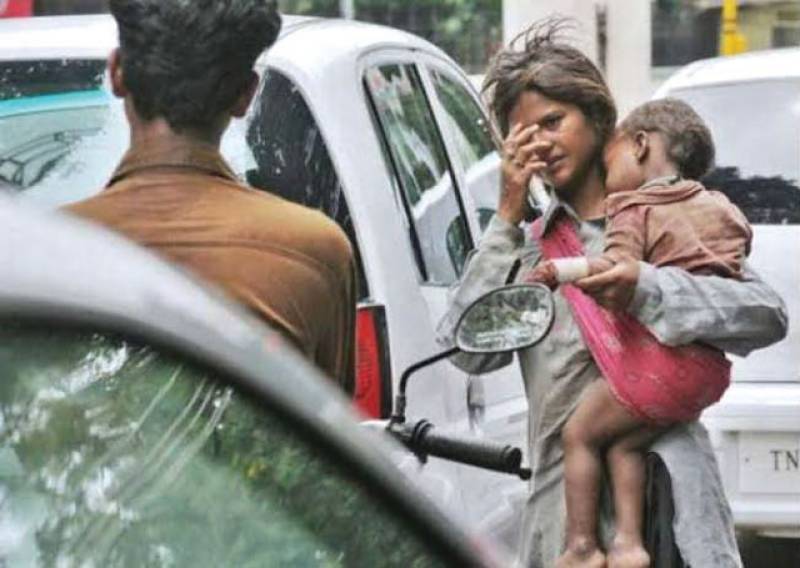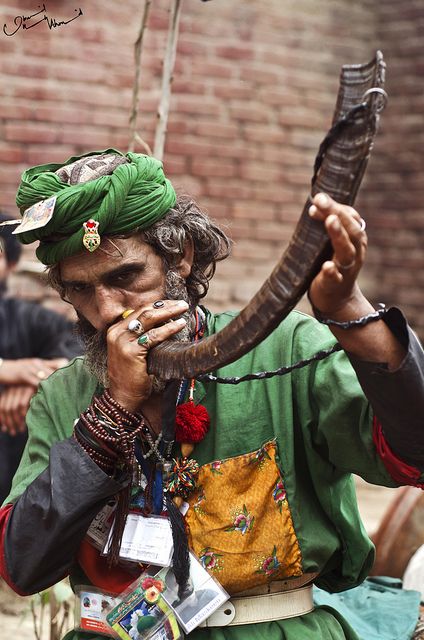
The culture of begging is deeply embedded in Pakistani society; shrines of holy men are often magnets for beggars
By Anees | Saba | Rizwan |Tasbia |Aqsa
Beggary is a major issue in Pakistan, a country where a large portion of the population lives below the poverty line. The rising inflation and the lack of opportunities for many people have made it increasingly difficult for them to make ends meet. As a result, many have turned to begging as a means of survival. However, the problem of beggary in Pakistan is not limited to poverty alone.
According to the Asian Human Rights Commission (AHRC), in 2022, there were between five to twenty-five million beggars in Pakistan – about 2.5 per cent to 11 per cent of the entire population. However, these numbers may not be accurate, as many beggars are not registered and operate in an informal economy. Women and children are in more demand by professional beggars, who often use them as props to keep the money coming in. Many of these people may belong to professional groups of beggars, controlled by mafias that run domestic begging circles – a lucrative business.

Many beggars belong to professional groups controlled by Mafia. Criminal gangs need to be tackled by the police, but the biggest problem is superstition
The culture of begging is deeply embedded in Pakistani society. Shrines dedicated to holy men are often magnets for beggars, especially children, as many believe that giving money to the poor will increase the chance of their prayers being heard. Unfortunately, this has led to the creation of a begging mafia that forces thousands of children into a life of slavery. Criminal gangs need to be tackled by the police, but the biggest problem is superstition. There needs to be more public discussion and education to teach people that there is nothing Islamic about leaving a child at a shrine or donating money to a child who is being forced to beg. People need to ask more questions and think about where these children are coming from. Only then can this problem be solved.
The government has laws in place to ban begging, but there is a lack of implementation and rehabilitation mechanisms for those who are caught
The issue of beggary is not just limited to the streets. It is also prevalent in Pakistan’s prisons. According to a report published by the Human Rights Commission of Pakistan (HRCP), beggary is rampant in prisons across the country. In 2021 alone, there were 2100 beggars in jails. The report states that the beggars are often arrested on the streets and put in jail, where they are subjected to inhumane conditions. They are often forced to sleep on the floor, without proper food or medical care. Many of them die due to the harsh conditions.
The government has laws in place to ban begging, but there is a lack of implementation and rehabilitation mechanisms for those who are caught. Although the local police have been given the power to stop the beggars and arrest them, there is no mechanism for the execution. For example, if beggars are arrested and put in jail, it is not possible to keep them in jail for too long as the beggars are in great number and all of them cannot be put behind bars for a long time. Secondly, there are no reform centers where beggars can learn different skills to earn and live with dignity. There are organizations and shelter homes like ‘Panah’ that provide refuge to helpless women and children, but these are not enough to address the scale of the problem.
To address this issue, there needs to be a comprehensive approach that includes tackling poverty and providing more opportunities for people to earn a living. The government needs to develop a structured mechanism that will not be affected by a regime change, which includes rehabilitation and protection mechanisms for victims of beggary and trafficking. Civil society and service providers need to work with the government to address the issue of begging in Pakistan. There should be more awareness campaigns and education programs to change the mindset of people towards beggars and to discourage them from giving money to professional beggars.

Beggary is a complex issue in Pakistan that requires a multi-faceted approach to tackle it. It is not just a problem of poverty, but also one of organized crime, superstition, and lack of rehabilitation mechanisms.
According to a report by the United Nations Development Program (UNDP), Pakistan ranks 154th out of 189 countries in the Human Development Index (HDI). The HDI is a measure of a country’s development that takes into account factors such as life expectancy, education, and income. The report states that poverty and inequality are major drivers of low HDI in Pakistan. Therefore, any solution to the problem of beggary in Pakistan must address these underlying issues of poverty and inequality.
All in all, beggary is a complex issue in Pakistan that requires a multi-faceted approach to tackle it. It is not just a problem of poverty, but also one of organized crime, superstition, and lack of rehabilitation mechanisms. The government, civil society, and individuals all have a role to play in addressing this issue and creating a more just and equitable society where no one has to resort to begging to survive. To achieve this, there needs to be a more concerted effort to tackle poverty, provide more opportunities for people to earn a living, and to raise public awareness about the dangers of professional begging and trafficking. Only then we can hope to eradicate the nuisance of beggary in Pakistan and create a better future for all its citizens.
_________________
Al the coauthors are students of BS (SS) 3-A, Study of Anthropology, SZABIST, Larkana Sindh